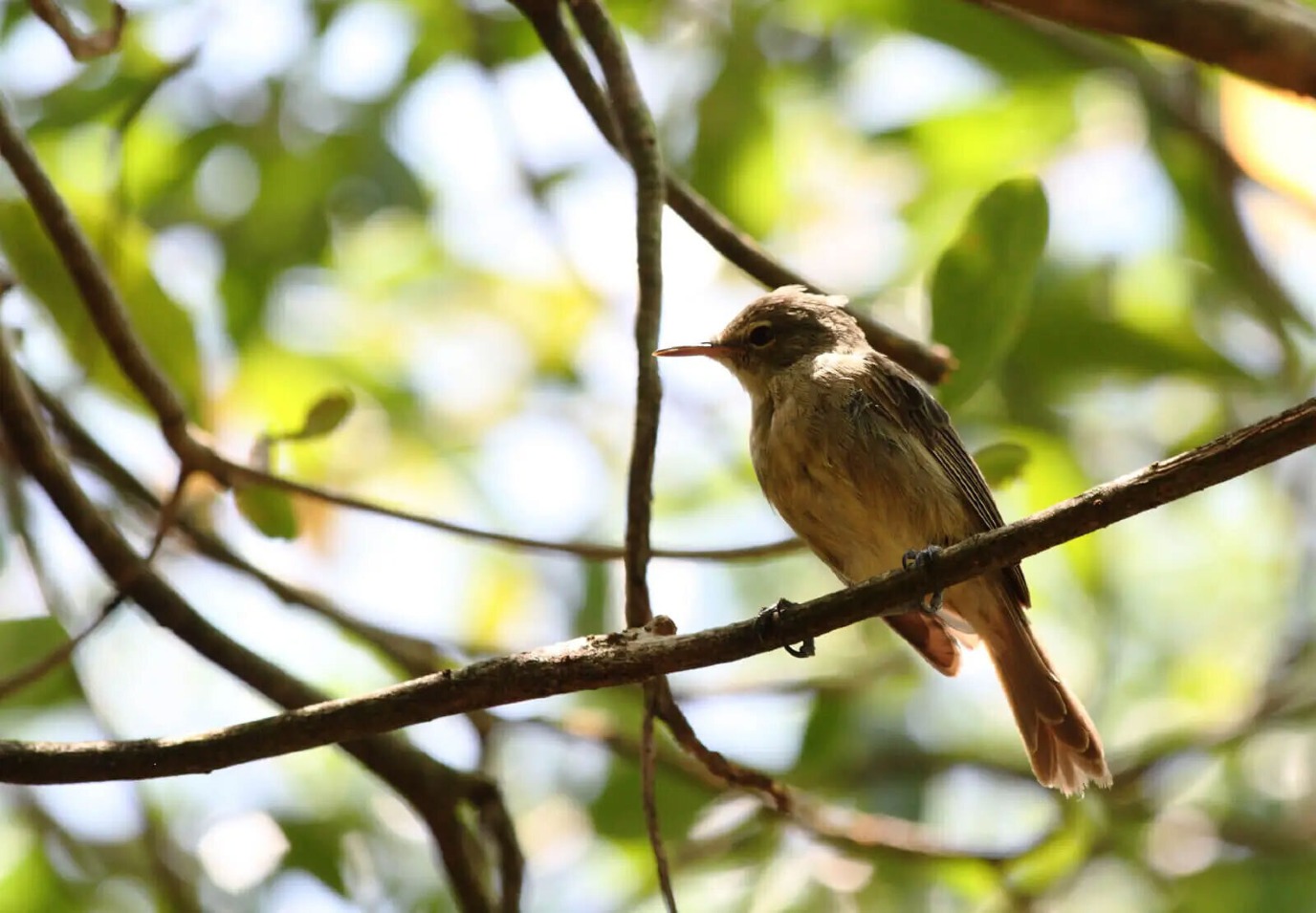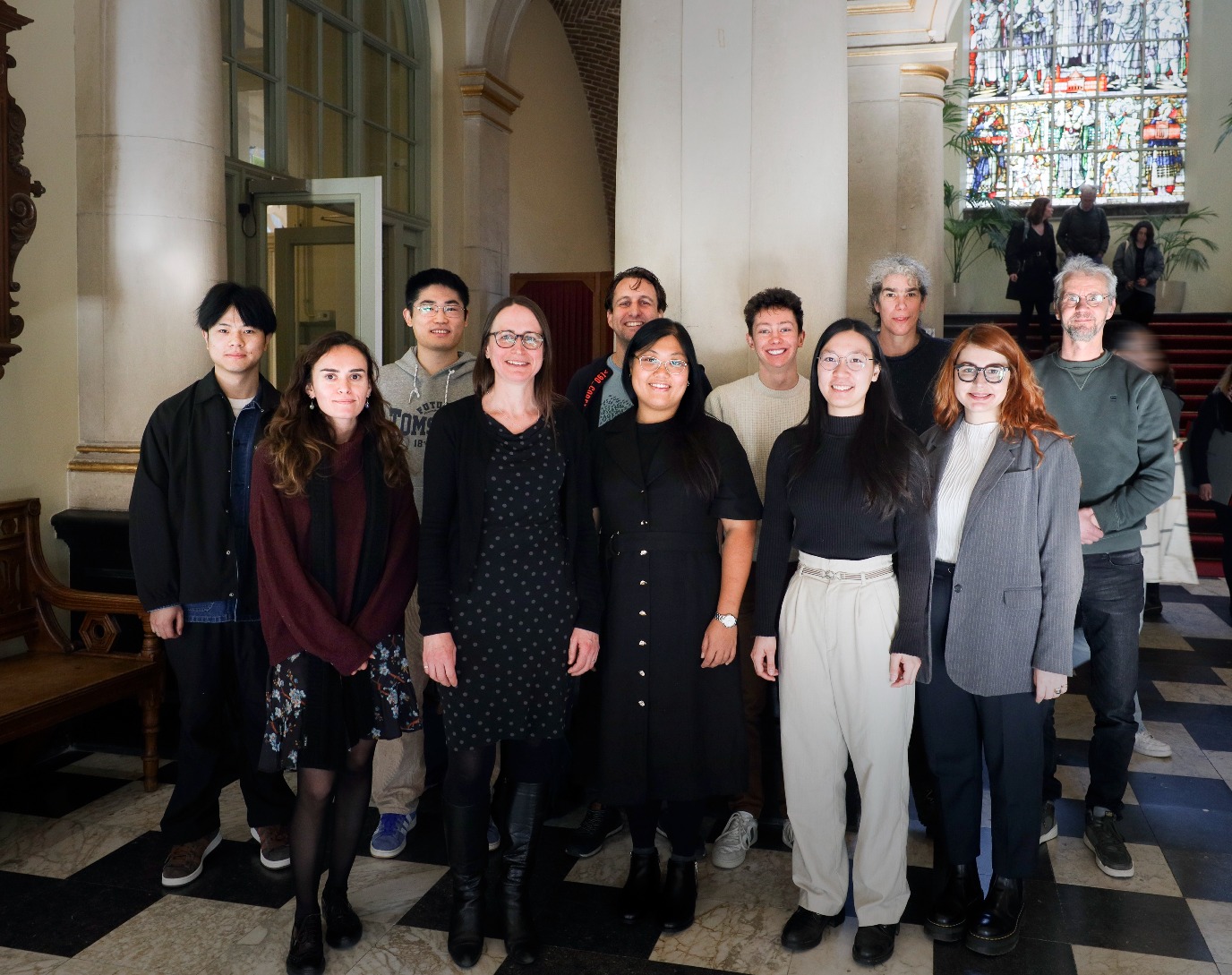'Diversity leads to better science'
In addition to her biological research on ageing, Hannah Dugdale also studies disparities relating to diversity in science. Thanks to the latter, she is one of the two 2024 laureates of the Athena Award, an NWO prize for successful and inspiring female researchers who are role models for others. “Diversity in your research group actually improves the quality of the science.”
Text: Nienke Beintema
Diversity, equality and inclusion in academia are not just important for ethical reasons, nor something to strive for as a matter of duty or reputation, says Hannah Dugdale. “People with different backgrounds bring different experiences and perspectives to the table”, she says, “which often leads to new ideas and approaches.”

For Dugdale this is not just something that she ponders over by herself. She actively works toward a wider acceptance of this notion in academia. She studies the data on diversity, publishes papers about her findings, gives lectures – and aims to attract a wide range of PhD students to her own Groningen research group. It is this work that earned her NWO’s 2024 Athena Award – and it is this work that she will use the 50,000 euro prize money for. “We’re now designing a pilot project on how to attract more PhD students from underrepresented groups, and how to improve their visibility in academia.”
Has diversity always been on your radar?
“Not really, to be honest. It started when a colleague of mine, Julia Schroeder – who did her PhD in Groningen and is now at Imperial College London – drew my attention to the list of invited speakers at a prestigious conference she had been to. The vast majority of them were male. We said to each other: ‘We’re scientists, so we really should research this.’ So we decided to look at the conference catalogues of the past 11 years. It turned out that only 15 percent of invited speakers were women, while more generally, among early-mid career faculty, about one third is female. We published a paper about this together. The conclusion is actually worrying, because being an invited speaker improves your visibility. It helps you to grow your network, get job offers, and attract funding. So having a lower percentage of female invited speakers is something that perpetuates itself.”
Do you do this research on the side?
“Mostly, yes. It’s really just my personal interest, and my firm belief that the science suffers if there’s a lack of diversity. That’s why winning this award is such a huge recognition of the fact that this is important. And it will help me to keep working on this issue, alongside my core research.”
What is your core research?
“I’m an evolutionary biologist. I study the mechanisms behind ageing – and why there are such large individual differences in this regard. Here in Groningen we are trying to determine how much of the variation that we see is genetic, versus environment-related.”

How do you study this?
“We are looking at large human datasets, for instance from the longstanding Lifelines Project (a large, multidisciplinary cohort study that tracks the health of over 167,000 participants in the Northern Netherlands, ed.). And we’re looking at birds that have interesting social structures, including the Seychelles warbler. We study an entire isolated population in which most birds are colour-ringed, which allows us to identify them individually, and to know how all the birds are related.”
Did you find anything yet?
“The Seychelles warbler is a very long-lived species, with individuals that can live up to 20 years. We found that when mothers are younger, they have daughters that live longer – and as a result produce more grand-offspring for them – than the daughters that they have when they are older. We were one of the few studies to show this during a mother’s life span. A lot of studies have only compared young versus old parents, which then may be biased by selective disappearance of poorer-quality individuals. The reduced lifespan of offspring from older parents is known as the Lansing Effect and is of concern for humans, given the increasing age of reproduction nowadays. We still don’t know what causes this effect. It’s very complicated.”
Back to diversity in science… How are you working on this in your own group?
“That’s also a challenge!” Dugdale laughs. “For one thing, when we’re advertising a job, we emphasise how much we value diversity. And I know for sure that some people in my group applied because they knew that diversity is an important theme here. But in wider academia, a lot still needs to be done. Still only 29 percent of professors in the Netherlands are women. It’s great that universities are tracking progress.”

What else can be done?
“There are lots of small, simple steps that can be very effective. Make sure that seminars have balanced speaker ratios. And make sure there are role models among the speakers: people that women, particularly younger women, can look up to. And take a critical look at the way science is taught and portrayed in schools. Are scientists always pictured as crazy, grey men in a lab coat? The attitudes of girls and women towards science, technology and math subjects is culturally determined, and this starts at a very early age. Small steps in our own labs can make a difference as well. Be aware of cultural differences in your group, and create a culture in which people feel free to talk openly. Call it out if there are issues. In short, make your group a happy place where people feel safe and respected. It’s been well documented: diversity leads to better science – and this will benefit the university as well as society as a whole.”
Hannah Dugdale (1977) studied biology in Cambridge and Oxford and obtained her PhD at the latter university. She first came to Groningen in 2009 as an NWO Rubicon fellow, returning in 2011 and 2015 for additional research fellowships. In between she worked as a Natural Environment Research Council (NERC) independent fellow in Sheffield, and then as an Associate Professor in Leeds. Dugdale was appointed Professor of Evolutionary Medicine in Groningen in 2020. She studies the evolution of individual differences in ageing.
This article has been taken from our alumni magazine Broerstraat 5.
More information
| Last modified: | 31 March 2025 3.11 p.m. |
More news
-
01 April 2025
NSC’s electoral reform plan may have unwanted consequences
The new voting system, proposed by minister Uitermark, could jeopardize the fundamental principle of proportional representation, says Davide Grossi, Professor of Collective Decision Making and Computation at the University of Groningen
-
01 April 2025
‘AiNed’ National Growth Fund grant for speeding adoption of AI at SMEs
Professor Ming Cao receives an ‘AiNed’ Growth Fund grant of EUR 2.4 million for research that will contribute to faster adoption of AI at SMEs in the technical industry in the Netherlands.
-
31 March 2025
Green plastics: the solutions are here
University of Groningen scientists have developed new ways to make green plastics, but it is difficult to produce them at competitive prices.
